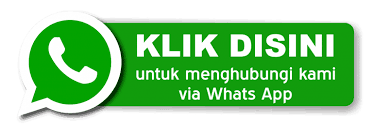The Effectiveness of Digital Communication in Bridging the Generational Gap in the Workplace
Keywords:
Digital Communication, Generation Gap, Level Of Education, Work ExperienceAbstract
This study aims to analyze the influence of Digital Communication Effectiveness as well as Level of Education and Work Experience in bridging the generation gap in the workplace. The generation gap is a significant issue in the modern work environment, mainly due to differences in perceptions, work styles, and communication preferences between generations. The research method used is quantitative with a multiple linear regression approach. Respondents consisted of 100 employees from various industries, who were randomly selected. The results showed that Digital Communication Effectiveness has a significant and positive effect on reducing the generation gap (p < 0.05), with a contribution value of 69.7% to the variation in the generation gap. In addition, Education Level and Work Experience also have a significant effect but with a smaller contribution. The findings confirm the importance of effective implementation of digital communication in reducing tensions and enhancing intergenerational collaboration in the workplace.
References
Ana, F., Oliveira. (2023). Minding the Gap: Bulding Bridges Through Intergenerational Media and Informational Literacy. doi: 10.24140/asdigital.v1.p01.07
Anu, Sivunen., Kaisa, Laitinen. (2020). Digital communication environments in the workplace. doi: 10.4324/9780429196881-4
Baker, T., Jones, M., & Edwards, D. (2021). “Intergenerational Communication in the Workplace: The Role of Digital Tools”. Journal of Business Communication, 58(3), 320-341.
Chaden, R., Noureddine. (2023). 31.2 The Development of Intergenerational Gaps in Adolescent Subcultures in the Digital Age. doi: 10.1016/j.jaac.2023.07.281
Choudhury, S., & Khosravi, H. (2021). “Bridging Generational Gaps: The Role of Technology in Enhancing Collaboration in the Workplace”. International Journal of Information Management, 56, 102273. https://doi.org/10.1016/j.ijinfomgt.2020.102273
Daft, R. L., & Lengel, R. H. (1986). “Organizational Information Requirements, Media Richness and Structural Design”. Management Science, 32(5), 554-571.
Elaina, Rose, Johar., Nadzirah, Rosli., Siti, Nur, Sabrina, Mohd, Hamirudin. (2023). Ageless Collaboration: From Boomers to Gen Z, Thriving in the Era of Multigenerational Workforces. International journal of academic research in business & social sciences, doi: 10.6007/ijarbss/v13-i12/20129
Frandsen, F., & Johansen, W. (2019). “The Role of Digital Communication in Generational Diversity at Work”. Communication Research Reports, 36(5), 421-431.
Gonzalez, A., Zubizarreta, J. R., & Fernandez, C. (2020). “Digital Communication in the Workplace: Trends and Challenges”. Journal of Organizational Behavior, 41(8), 773-785.
Gregorio, Macchi., Nicola, De, Pisapia. (2024). Virtual reality, face-to-face, and 2D video conferencing differently impact fatigue, creativity, flow, and decision-making in workplace dynamics. Dental science reports, doi: 10.1038/s41598-024-60942-6
J., Justine, Dyikuk. (2019). 4. The Digital Age: Bridging the Communication Gap Between Digital Natives and Digital Immigrants.
Joko, Purnomo., Emiliana, Sri, Pudjiarti. (2024). Navigasi Kepemimpinan Di Era Digital: Tantangan Dan Peluang Bagi Generasi Milenial. Transformasi, doi: 10.56444/transformasi.v3i1.1683
Kowske, B. J., Rasch, R., & Wiley, J. (2011). “Millennials' and Generation X's Reactions to the Work Environment: A Comparison of Two Generations”. Journal of Leadership & Organizational Studies, 18(3), 272-283.
Lynn, Schofield, Clark. (2009). Digital media and the generation gap. Information, Communication & Society, doi: 10.1080/13691180902823845
M., Cunha., S., Pinto., Manuel, Pereira. (2024). Screening the Digital Landscape: Generation Z Insights into Employee Perceptions of Social Media Use in the Workplace. European journal of management issues, doi: 10.15421/192402
Meghan, Jefferson., Zane, L., Berge. (2024). Generational learning differences in corporate training. doi: 10.56811/pfi-22-0019
Miftahul, Jannah., Noniya, Dewinta., A., Ritonga., Muhammad, Farhan. (2023). Tantangan Komunikasi Antar-generasi dalam Lingkungan Kerja Organisasi Modern. SABER, doi: 10.59841/saber.v2i1.648
Mittal, Asmi. (2024). Study on Leveraging Digital Tools for Enhancing Employee Engagement in Remote Work Settings. Indian Scientific Journal Of Research In Engineering And Management, doi: 10.55041/ijsrem35680
Mohamed, Qasim, Mohamed, Alomari. (2023). The Impact of Technological Transformation on the Realm of Modern Business Management. doi: 10.47577/eximia.v12i1.410
Njoroge, Deborah, Naliaka., Prof., Thomas, Ngui. (2024). Generational Differences and Skills Mismatch Levels in Multigenerational Workforces. International journal of research and innovation in social science, doi: 10.47772/ijriss.2024.807160
O., O., Olaniyi., Jennifer, Chinelo, Ugonnia., Folashade, Gloria, Olaniyi., Aisha, Temitope, Arigbabu., Chinasa, Susan, Adigwe. (2024). 4. Digital Collaborative Tools, Strategic Communication, and Social Capital: Unveiling the Impact of Digital Transformation on Organizational Dynamics. Asian Journal of Research in Computer Science, doi: 10.9734/ajrcos/2024/v17i5444
Payal, Rahim, Virani. (2024). Marketing Communications in The Era of Digital Transformation. International journal of scientific and research publications, doi: 10.29322/ijsrp.14.02.2023.p14618
Raghavan, S., & O’Leary, D. E. (2020). “The Role of Training in the Adoption of Digital Communication Tools: An Empirical Study”. Journal of Business Research, 121, 253-264. https://doi.org/10.1016/j.jbusres.2019.02.028
Raphael, Kamanga., Jeanna, Matthews. (2020). The Role of Digital Work Platforms in Negotiating New Power Dynamics.. The Compass,
Sebastian,Vaida. (2024). 2. Is there really a generational gap? characteristics, values and how to talk to each generation. Journal Plus Education, doi: 10.24250/jpe/1/2024/sv/
Sukandi, A. (2024). Analysis of Opportunities and Challenges for Subang City within the Framework Rebana Triangle Economic Region. Journal of Law, Social Science and Humanities, 2(1), 68-83.
Teresa, Dieguez., Paula, Loureiro., Isabel, Ferreira. (2024). The gap between the expectations of Gen Z and Organizations in Industry 4.0. doi: 10.1109/iscv60512.2024.10620114
Tracy, Alam., Michelle, Pardee., Beth, Ammerman., Megan, Eagle., Kelly, Shakoor., Heather, Jones. (2024). 3. Using digital communication tools to improve interprofessional collaboration and satisfaction in a student-run free clinic. Journal of the American Association of Nurse Practitioners, doi: 10.1097/jxx.0000000000001053
Wang, Y., Li, X., & Chen, J. (2022). “Improving Intergenerational Collaboration through Digital Communication Tools: A Study of Workplace Dynamics”. Journal of Applied Psychology, 107(4), 640-655.
Yulianti, Fajar, Wulandari., Mareta, Purihastine., Heri, Afianto., Yanuwar, Bastian., Murtiadi, Murtiadi. (2023). 4. Tantangan Komunikasi di Era Digital: Memahami Generasi Z. AL-MIKRAJ : Jurnal Studi Islam dan Humaniora (E-ISSN: 2745-4584), doi: 10.37680/almikraj.v4i1.4058
Zemke, R., Raines, C., & Filipczak, B. (2000). “Generations at Work: Managing the Clash of Veterans, Boomers, Xers, and Nexters in Your Workplace”. New York: AMACOM5.
Downloads
Published
How to Cite
Issue
Section
License
Copyright (c) 2024 Sari Endah Nursyamsi, Nasaruddin Siregar , Ratna Suminar S

This work is licensed under a Creative Commons Attribution-ShareAlike 4.0 International License.



